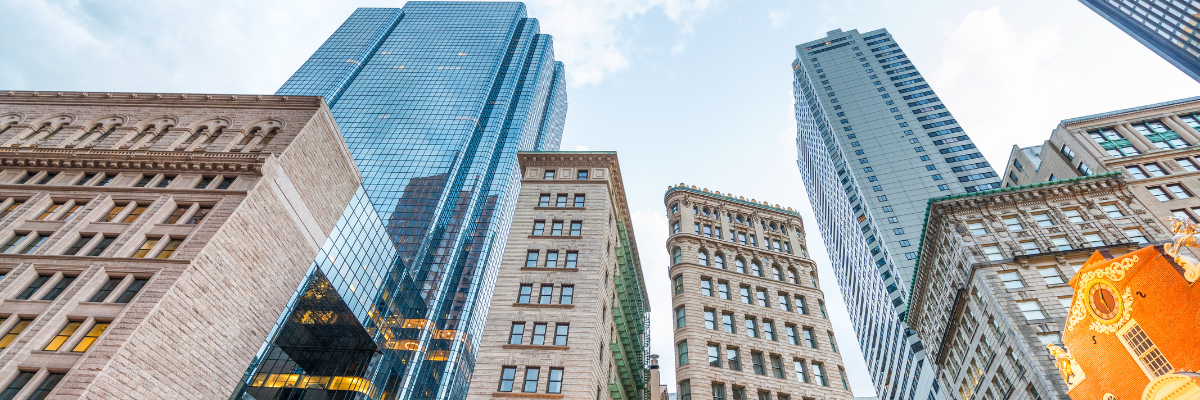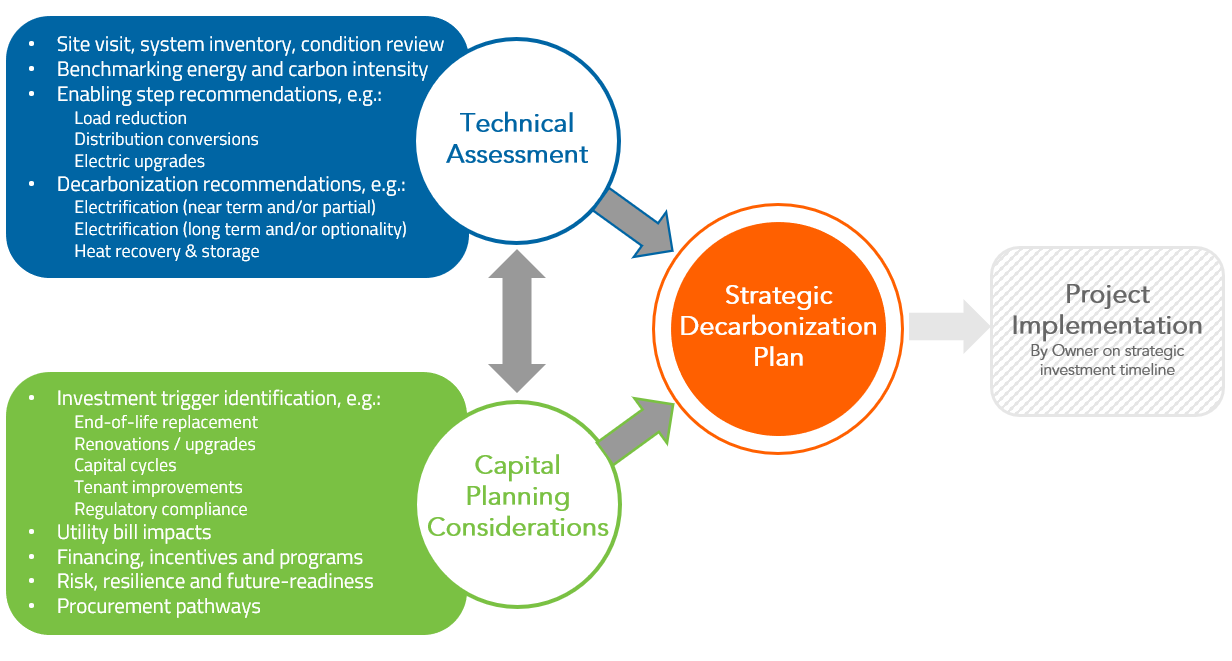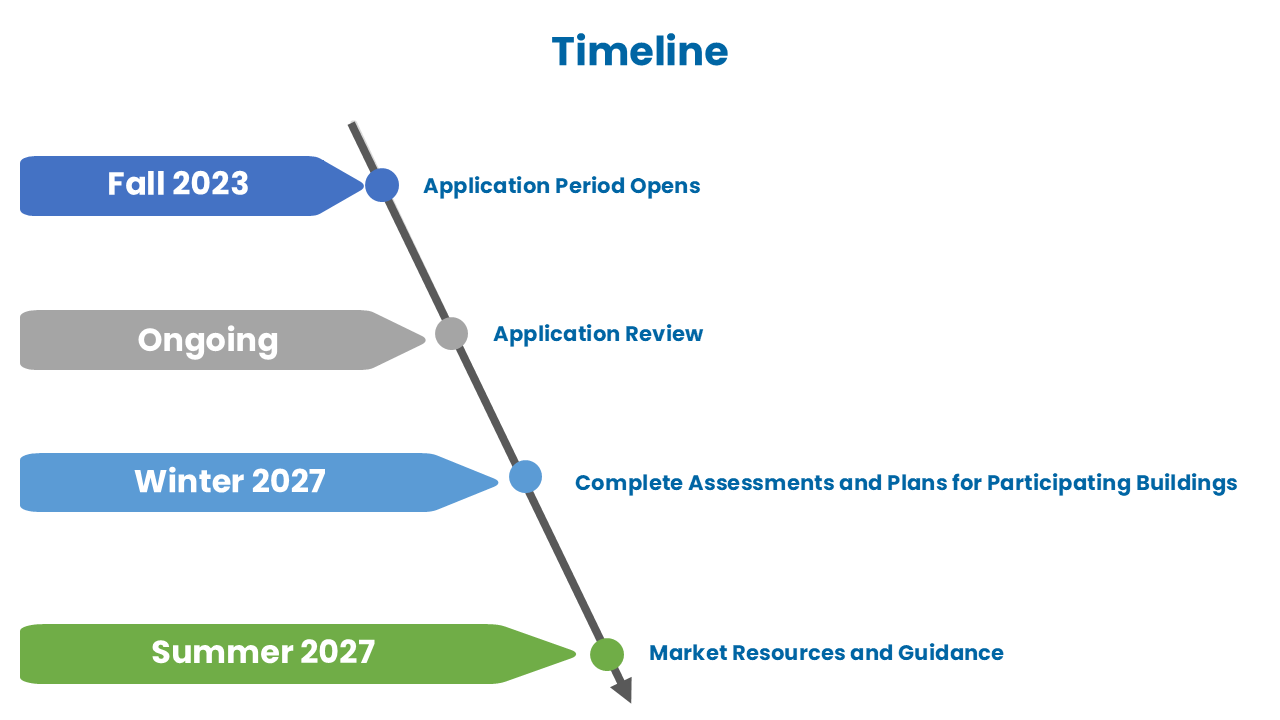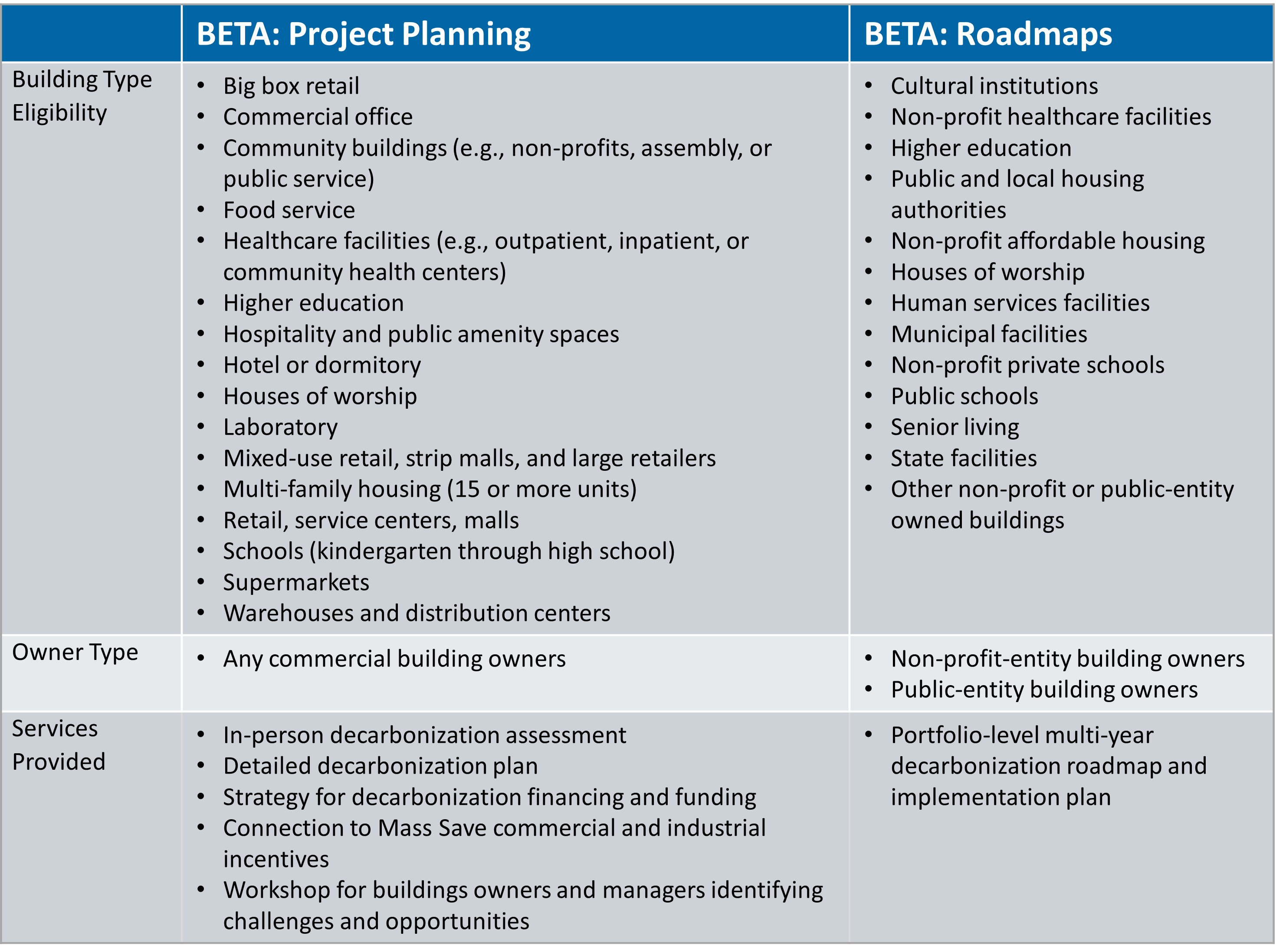
MassCEC / High Performance Buildings / Funding Opportunities / BETA: Project Planning
The Challenge: Electrify and Decarbonize Commercial Buildings
To accelerate the electrification and decarbonization of all building end uses in the commercial buildings sector, we need examples of successful approaches for a range of building and ownership typologies, knowledge sharing, and an integration of emissions reduction strategies with capital planning.
MassCEC’s BETA: Project Planning program works with participants to explore and disseminate approaches to commercial building electrification and decarbonization, helping to prepare our commercial building stock for net zero emissions by 2050.
About the Building Electrification and Transformation Accelerator (BETA): Project Planning
The Building Electrification and Transformation Accelerator (BETA): Project Planning is a MassCEC pilot initiative that seeks to surface and prove out the technical, implementation, and financial models to serve as the basis for electrification and decarbonization of the commercial buildings sector. The Program will develop and pilot a decarbonization assessment process for commercial buildings and multifamily residential buildings with 15 or more units. The pilot will provide no cost, in-depth building audits to support commercial building owners in planning electrification and decarbonization retrofits. These custom plans will be utilized to create a robust set of market resources that support pathways towards full commercial building electrification.
Each participating building will receive an electrification and decarbonization plan, including direction to financing options and a recommended implementation timeline.
Rolling
We're excited that you're learning about one of our programs! Please also use Massachusetts' Business Front Door service, which suggests additional state resources every step of the way as your company grows.
Program Goals
The end goal of each decarbonization plan developed under this pilot is to lay out the steps to eliminate the use of fossil fuels from the building, meeting interim targets and making the building “2050-Ready.” Plans will demonstrate replicable, cost-effective approaches to electrifying commercial buildings, including both “all at once” retrofits and “over time” approaches that leverage natural equipment replacement cycles. Through this program, MassCEC aims to create and test an assessment framework that is comprehensive yet also flexible enough to address the wide variety in the commercial building stock.

Project Team
MassCEC is pleased to have Slipstream Group, Inc. (Slipstream) under contract as the Lead Technical Consultant. Slipstream brings a group of experienced sub-contractors to the project, including the RISE Engineering, Symmes Maini & McKee Associates, Inc., Rocky Mountain Institute, and TSK Energy Solutions, LLC.

Who's Eligible to Participate?
Project Sites must be one of the following building types to be eligible to participate in the program:
- Big box retail
- Commercial office
- Community buildings (non-profits, assembly, public service)
- Food service
- Healthcare facilities (e.g., outpatient, inpatient, community health centers)
- Higher education
- Hospitality and public amenity spaces
- Hotel or dormitory
- Laboratory
- Mixed-use retail, strip malls, and large or small retailers
- Multi-family (15 or more units)
- Religious worship
- Retail, service centers, malls
- Schools (Kindergarten through high school)
- Supermarkets
- Warehouses and distribution centers
MassCEC may, on a case-by-case basis, determine whether a project site that does not meet the above criteria is eligible, depending on other building characteristics.
Commercial buildings of any size are welcome to apply. (Previously, only buildings larger than 20,000 square feet were eligible.)
Additional project eligibility requirements are detailed in the Program Manual.
Apply
Application Process
- Review eligibility requirements in the Program Manual
- Preview the online application form and collect required information
- Complete and submit an application
Application Materials
Which Program is Right for Us?
MassCEC's Building Electrification and Transformation Accelerator (BETA) has two pilot programs underway:
- BETA: Project Planning
- BETA: Roadmaps
Both programs help decarbonize a wide range of buildings across the Commonwealth, but differ in eligibility criteria and services provided. The following table can help you decide which program better fits your needs.

Resources
Blog Posts
-
Small Commercial Buildings Now Eligible for MassCEC BETA: Project Planning Program
-
Building Performance Codes and Ordinances
-
Buildings Pilot – Participant Slots Filling Up!
-
Planning Pilot Expands
-
Building Decarbonization Planning Protocols
-
New Market Characterization Report Provides Valuable Building Insights
-
Decarbonizing Commercial and Multifamily Buildings
One-Page Flyers
Learn About High Performance Buildings
MassCEC / High Performance Buildings / Funding Opportunities / BETA: Project Planning
Additional Funding Opportunities
BETA: Roadmaps
Custom electrification and decarbonization plan, including financing analysis
Rolling, deadline TBD
Ride Clean Mass Charging Hubs
Mass Fleet Advisor
No-cost services
Rolling
